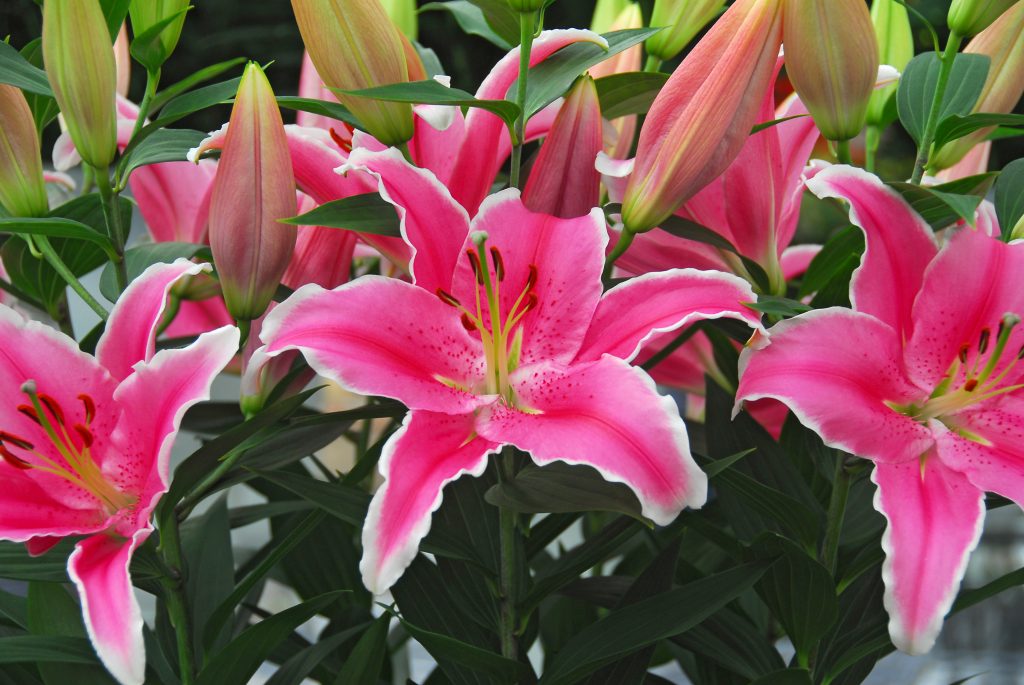
How do I plant my lily bulbs?
Lilies are very hardy bulbs. They can tolerate very cold conditions but do not like to get wet. If planting in borders the soil must be free draining and preferably humus rich. Some lilies prefer acid soil, mainly Oriental lilies, and some prefer alkaline mainly Asiatic lilies. It is best to check which soil you have. When planting in pots or tubs you must make sure that they are kept moist but do not get waterlogged. Plant bulbs with 4-6″ (10-15cm) of soil above them. If planting in pots, plant 3 in a 10-14″ (25-35cm) pot, in a good-quality, peat-free, multi-purpose compost. John Innes No.3 is ideal for Lilies also. If it appears too dense, add some horticultural grit to improve drainage.
Some lilies are lime-haters (e.g. L. Auratum and L. Speciosum), and should be potted into pure ericaceous compost. John Innes ericaceous compost is recommended.
Lilies are heavy feeders, so add granules of a controlled-release fertiliser when planting.
You can find planting instructions for every variety of flowering bulbs at the bottom of every product page on our website.
Do I need to feed my lilies?
If you want to feed your lilies then a slow release fertilizer is best. Also a general tomato feed has shown to be beneficial for lily growth, use 1/2 the dilution recommended on the bottle. Or use the Lily Beetle Prevention Spray which has great results for strengthening and stimulating lily growth.
How do I get rid of the Lily Beetle?
We recommend using the Lily Beetle Prevention Spray. The key is to be vigilant and keep checking your foliage each day when you can.
Do Lilies multiply?
Lilies do multiply but if in containers will need lifting every 2 or 3 years as they will become pot bound. Lift the bulbs out of the soil and carefully pull off any attached bulblets. Replant the original bulbs. You can also plant the bulblets, but bare in mind these will take a couple of years to become established.
Are Lilies poisonous to cats and dogs?
Lilies are toxic to cats and dogs if consumed (like a lot of plants). Lilies should be kept out of reach of small children as well. Lily pollen is poisonous to cats and dogs but it has to be ingested. Cats/dogs are very clever animals and will very rarely eat anything they are unsure about. There are also numerous lilies now that are pollen free including our Roselilies and Double Oriental Lilies. If you’re worried then just nip the stamen out of the lily as it opens and avoid placing them where pets can brush past the stamen and get it on their fur.
Do I lift my Lily bulbs over winter?
Lilies do not like to be dried out, they must be kept in soil at all times. Lilies, in fact, like a cold dormant phase and are happy to stay out in the winter. If you are worried about leaving them out in the borders over winter, lift them and store them in peat until replanting the following spring. A good tip is to tilt your pots on their sides over winter, lifting them upright again in the spring, preventing them becoming waterlogged.










